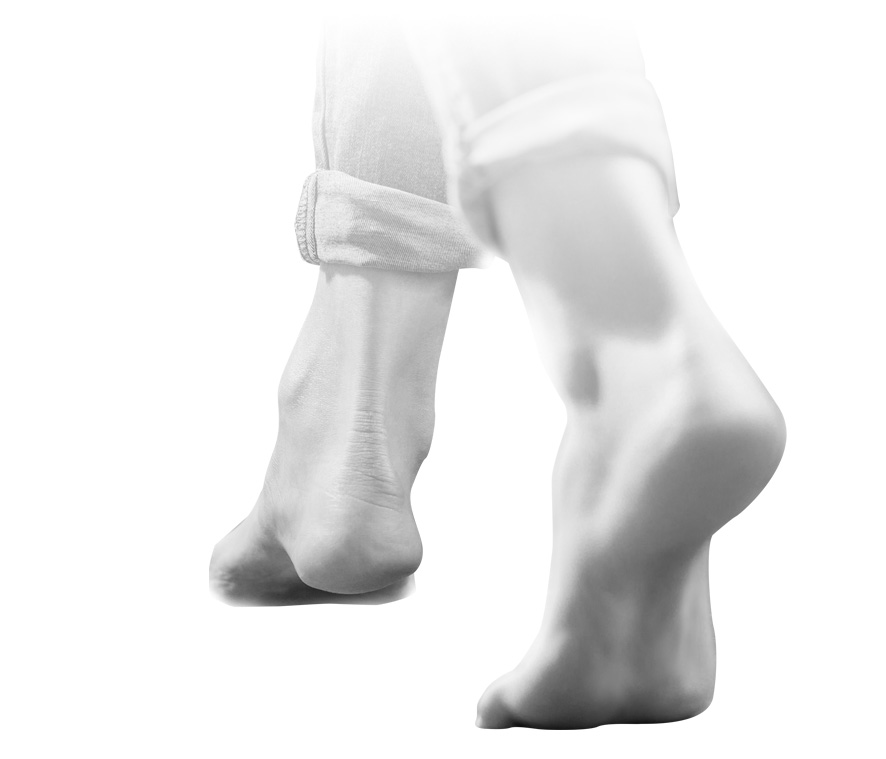What is Plantar Fasciitis?
An Overview of Plantar Fasciitis
Plantar Fasciitis is the most common cause of heel pain. One million Americans seek treatment for Plantar Fasciitis each year. Astym therapy is researched, tested, and proven to work. If you are tired of hurting, even if no other treatments have worked for you, it’s time to try Astym therapy and find relief.
Causes of Plantar Fasciitis
The plantar fascia is the thick, fibrous band of tissue that connects your heel bone to your toes. Like a bow string, it creates the arch of your foot and acts as a shock absorber. Sometimes, this tissue begins to degenerate, resulting in the condition Plantar Fasciitis/Plantar Fasciopathy (PF). PF is the most common cause of soft tissue heel pain, affecting one in ten people and accounting for about 8% of all running related injuries. It is estimated that one million visits per year are made in the USA for treatment of PF (Foot and Ankle Surgery Journal).
Symptoms of Plantar Fasciitis
The term “plantar fasciitis” is misleading because chronic plantar fasciitis is really a degenerative process which rarely includes inflammatory cells. Traditionally, a term containing “itis” at the end means inflammation, and now that we understand that the condition is primarily degenerative, the better term would be plantar fasciosis or fasciopathy. Why does the plantar fascia degenerate, causing pain and impaired movement?
The likely answer is mechanical (rather than arthritic, neurological, traumatic, or other systemic conditions). Repetitive strain and advancing age are often looked to first.
PF is considered to have multiple causes, with the most common being overuse – meaning too much stress or strain being put on the heel tissue, either from sports, work, or everyday life.
Risk Factors for PF may include:
- Arch problems, such as a high arch or flat feet
- Actively on your feet for long periods such as those in the military, runners or other athletes
- Workers whose job requires long hours on their feet
- Repetitive strain on the foot
- Overweight
- Pregnancy
- Unaccustomed walking or running
- Limited ankle joint dorsiflexion
- Posterior muscle group tightness
- Standing on hard surfaces
- Prolonged weight bearing
- Foot pronation
In athletes:
- Overuse combined with training errors, training surfaces, biomechanical alignment and muscle dysfunction and inflexibility
- Repetitive jumping
- In runners, increases in running intensity or frequency; and changes in footwear. In particular, firm footwear may put you at risk for developing PF.
Treating Plantar Fasciitis
There is no standard, widely accepted test for diagnosing PF. A clinical diagnosis may be issued after a history is taken and a physical exam is performed. PF is characterized by the onset of plantar heel pain after periods of rest. It is usually worse in the morning right after getting out of bed, with the first few steps. Although walking may help initially, the pain can recur as you keep walking. The pain can get worse after a period of intense activity, such as running, or after a long period of standing or walking, especially on a hard surface or when you climb stairs. Another common symptom is the inability to comfortably bend your foot so that the toes are brought up toward your shin (dorsiflexion). Some also complain of pain on toe extension. Resting may help alleviate the pain of PF, but after getting up and bearing weight after a rest period, the pain may be significant. Even though there are similar patterns of symptoms, the pain can vary in location, level and pain and duration. Up to one third of patients with PF will have PF in both feet, and it can affect both sedentary and athletic people.
If a patient exhibits these symptoms and has tenderness at the plantar aspect of the medial calcaneal tuberosity around the fascia insertion on the os calcis then often a medical practitioner may conclude PF is the likely culprit. Ultrasound can be used to confirm the clinical diagnosis if it shows certain factors, including plantar fascia thickening (>4-4.5mm) at its calcaneal insertion, and the reduced ability of a tissue to reflect an ultrasound wave. There may be degeneration effecting the normal reflective structure and disorganization of the normal ligament architecture.
Can Astym Therapy Resolve Plantar Fasciitis?
Astym therapy resolves the underlying source of pain, instead of just temporarily alleviating symptoms. Astym therapy can restore movement, get rid of pain, and get you back to living your life. With over 10,000 independently recorded patient cases, Astym therapy has been shown to resolve 91.2% of plantar fasciitis cases, with only 4-5 weeks of treatment.
Researched. Recognized. Reputable. A Treatment You Can Trust.
How Astym Therapy Can Heal Plantar Fasciitis
Astym treatment leverages the body’s ability to heal itself.
1
Stimulation of Regenerative Mechanisms
An Astym Certified therapist will conduct a thorough evaluation, and then follow specific treatment parameters to engage the regenerative mechanisms in the body that encourages the resorption of scar tissue and the regeneration of damaged soft tissues. Instruments are applied and firmly glided on the bottom of your foot, and possibly on your leg and other related tissues, following the direction of the muscles, tendons, and ligaments.
2
Stretching and Strengthening
Following your treatment session, you will be given a customized stretching and strengthening program designed to encourage your body to maximize the strength and agility of the plantar fascia and your other soft tissues.
3
Plantar Fasciitis Pain Is Naturally Relieved
Without surgery, injections, or drugs, Astym therapy can rebuild and heal the tissues of the plantar fascia within 4-5 weeks.
Better Treatment, Faster Healing

Short, Active Recovery
Your course of treatment with Astym Therapy is usually only 4-5 weeks, where activity is encouraged.

No Pharmaceuticals
Astym therapy does not require you to take medications or drugs, so you do not need to worry about medication side effects or interactions.

No Surgery
Many patients consider surgery a last resort because of the risks, recovery time, and uncertainty of success. With Astym therapy, thousands of patients have been able to avoid surgery.

No Long Term Damage
Multiple injections may increase the risk of rupture of the plantar fascia and fat pad atrophy (wasting away of the tissue). In addition, even if they do work, many types of the injections only result in short-term benefit of no more than a month. With Astym therapy, you can avoid the risks of having injections.

Succeeds Where Other Methods Have Failed
Astym therapy routinely succeeds where other treatments fail. In patients who failed injection therapy for PF, Astym therapy resolved 81% of their cases. In patients who failed other soft tissue therapy for PF, Astym therapy resolved 85% of their cases. In patients who failed splints/bracing/taping for PF, Astym therapy resolved 82% of their cases.
As Seen In:
FAQ:
Astym Treatment For Plantar Fasciitis
Will insurance cover Astym treatment for Plantar Fasciitis?
If your insurance plan includes physical and occupational therapy, Astym therapy should be covered by your insurance. If your plan does not include physical and occupational therapy, talk with your therapist about other payment options.
What is the difference between Astym and other soft tissue therapies for Plantar Fasciitis?
There is only one Astym therapy. It was produced through rigorous scientific development: from theory through basic science investigation to clinical study and practice. It has been proven to be safe and effective in multiple controlled clinical trials, and in over 10,000 independently collected outcomes from multiple centers across the country. Make sure your clinician is Astym Certified by checking our directory of Astym Certified providers, and looking for the Astym Certified Provider Seal and Astym Instruments. Picture? If you are not receiving genuine Astym therapy, research shows that it is likely ineffective and perhaps harmful. For more details see LINK to Astym therapy vs IASTM page.
Is Astym therapy treatment painful?
The treatment you receive should always be within your tolerance, and you should talk with your certified provider and be honest about your experience.
What are the success metrics for Astym therapy treatments of Plantar Fasciitis?
The gold standard to measure your success is whether your pain has been decreased or eliminated and whether you can do the activities you want to do – climb stairs, dance, run, participate in sports, play with your grandkids, etc.




















